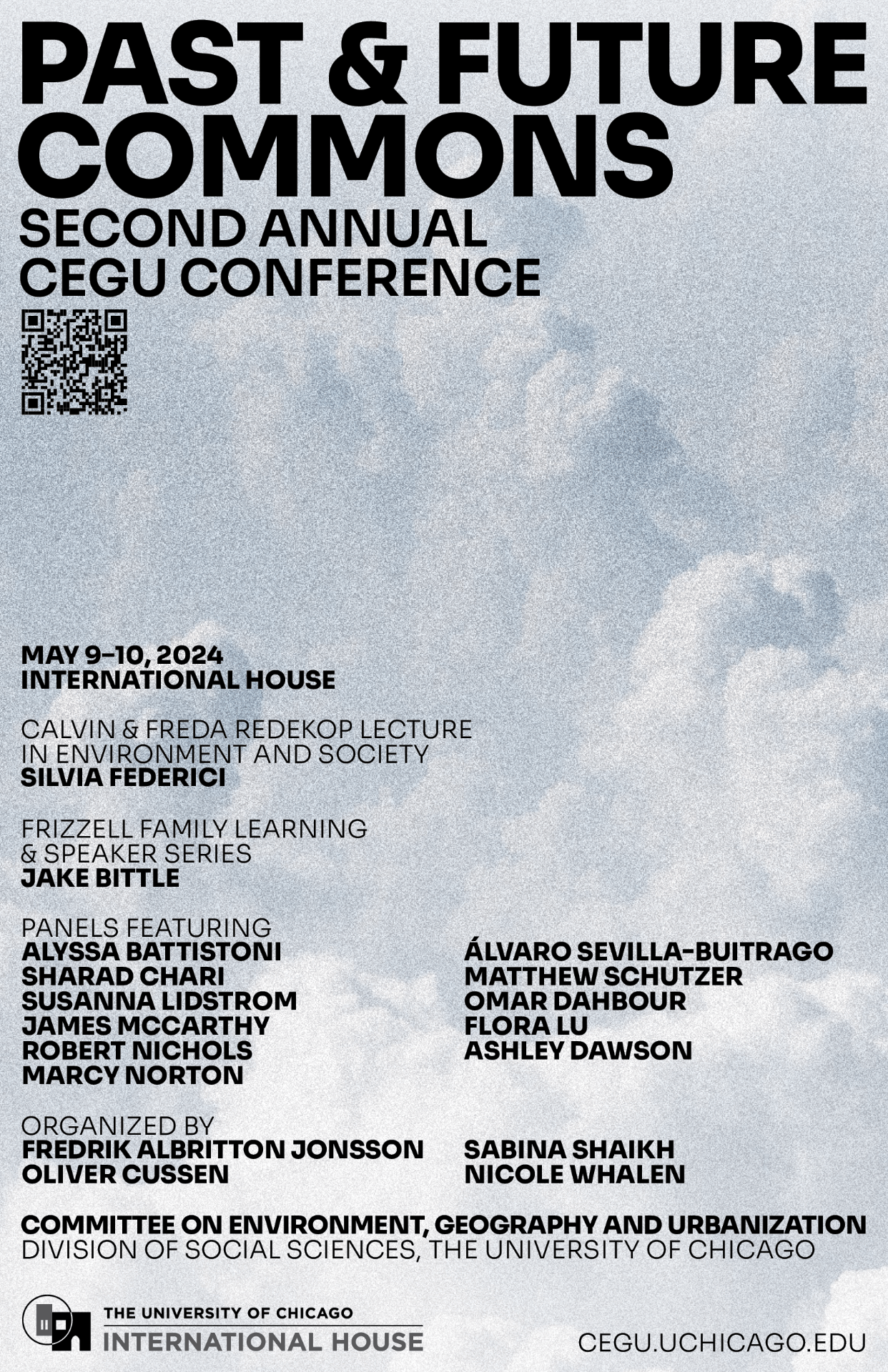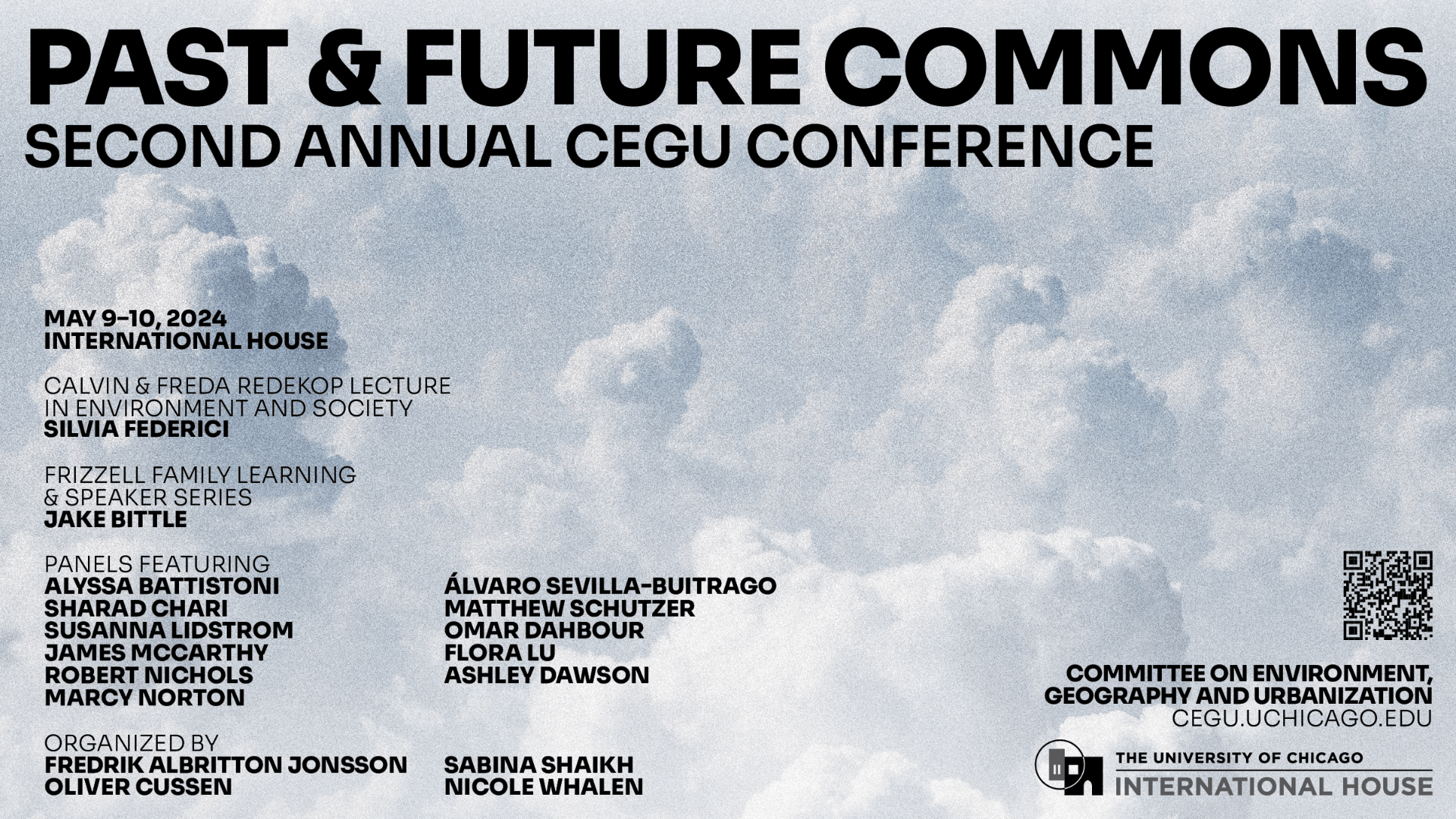Second Annual Conference, Committee on Environment, Geography and Urbanization (CEGU)
Division of Social Sciences, The University of Chicago
May 9–10, 2024 | International House
Register↗
Second Annual Conference, Committee on Environment, Geography and Urbanization (CEGU)
Division of Social Sciences, The University of Chicago
May 9–10, 2024
International House
Register↗
Panel Discussion
Transitional Commons
Moderated by Neil Brenner
Friday, May 10, 2024, 10:45am–12:15pm
International House
The Ambiguity of the Commons
Alyssa Battistoni, Barnard College
Garrett Hardin’s (in)famous 1968 article “The Tragedy of the Commons”—among the most widely cited, and most frequently assigned articles in all of political science—centers on a pastoral example of herdsmen sharing a field in which their cattle graze, drawing the conclusion that “freedom in a commons brings ruin to all.” The tragedy of the commons is typically taken to illustrate the action of human beings in general, abstracted into the prisoner’s dilemma and read as an ideal type of a generic collective action problem. In response, defenders of the commons argue that people have often successfully collectively managed common resources through self-generated group rules, community norms, and social regulation. Many narrate the commons via another genre: the romance of resistance. Rather than identifying the commons per se as either a site of tragedy or possibility, I consider which kinds of nature persist as commons in the face of persistent pressures towards commodification and privatization, while also attending to the ways that even these commons are remade by and exist within capitalist social relations more broadly. While Hardin presents his tragedy as a timeless parable, I argue that he usefully describes the condition of market dependence in capitalist economies—one diagnosed by other thinkers of the time in terms of seriality and alienation.
Theses on Common Space
Álvaro Sevilla-Buitrago,Universidad Politécnica de Madrid
Space is a crucial aspect of commons. Whether we are talking about material resources such as common pastures and community gardens or spheres of radical politics such as autonomous centers or open public assemblies, space and spatial practices constitute fundamental drivers and stakes in the construction, sustenance and protection of commons in very different historical and geographical contexts. This is especially true when we consider commons that are both essential to the subsistence of vulnerable commoner communities and critical to pursue alternative, bottom-up responses to various manifestations of the environmental crisis. But what do these territories have in common? Is it legitimate to speak of a communal production of space, and what are its main features? What kind of epistemologies are required to unpack them? And, more importantly, if there is anything like a precondition or matrix of communal space, how can it be nurtured and expanded? Spatial techniques —from classical enclosures to recent forms of topocide and neoliberal urbanism— have also been a key component of strategies to de-commonize society by eradicating or disorganizing the geographies of commoning. This presentation will thus examine the role of space and territoriality in the formation and demise of commons, the historical trajectories of this nexus, and the methodological and political challenges of reconstructing the grammar of commonscapes.
The Agrarian Question in the Era of Climate Change: Renewable Energy as Capitalist Industry or Commons
James McCarthy, Clark University

